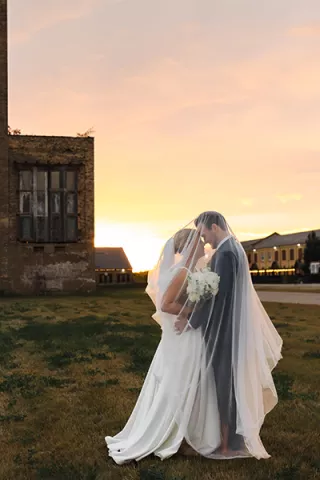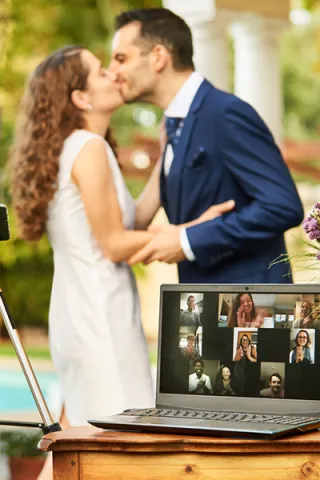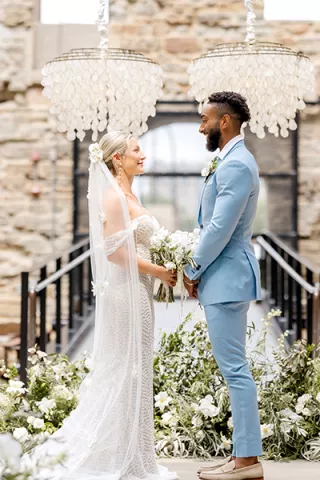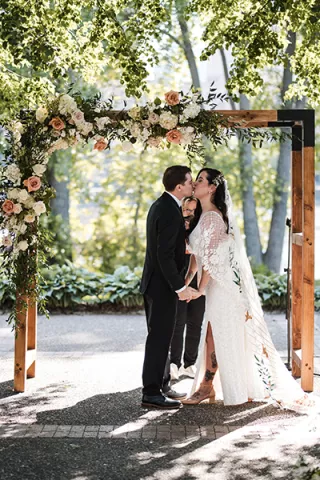This article courtesy of Avvo NakedLaw blog
With wedding budgets in the tens of thousands of dollars, it’s not surprising that wedding insurance – which protects couples against wedding day disasters – has become increasingly more popular in recent years. Read on to find out what wedding insurance covers, what it doesn’t, and how you can get it.
Wedding Insurance Covers Event Postponement or Cancellation
There are two types of wedding insurance policies: event postponement or cancellation, and liability.
If you purchase an event postponement or cancellation policy, you can expect to get back the money you put down should something go wrong. This kind of insurance usually covers:
-Deposits for vendors that go out of business before your wedding, or simply don’t show up
-Replacement or repair of the bride’s dress or groom’s tuxedo in case of loss or damage
-Damage to or loss of clothing, wedding rings, or photographs (Travelers Insurance will even bring the wedding party together again for new pictures, if the originals are damaged or lost)
-“Additional expenses” (this might cover a last minute caterer to replace the caterer who canceled on you, for instance.
These policies also cover the entire event should it be postponed or canceled due to severe weather, sudden illness of a member of the wedding party, or inability of the wedding party to come to the wedding (because of weather or commercial transportation shutdown).
The bride and groom can also be covered in case one of them is suddenly called away for military duty or if one of them becomes unemployed. And Fireman’s Fund is currently the only insurer to offer “Change of heart” coverage in select states, which will cover the cancellation if the bride or groom gets cold feet. They will even cover counseling for the one who was left at the altar.
Wedding Insurance Covers Event Liability
Many ceremony and reception venues now require liability insurance, so it’s not uncommon for many caterers or other wedding vendors to carry it themselves. Check with your vendors to see if this is something you need. Like liability insurance on your auto policy, it covers property damage and bodily injury.
Plus, if you are freely serving alcohol to your guests, you will need “host liquor liability” to protect you against accidents stemming from alcohol. Let’s say some rowdy guests damage the venue (or each other) during the reception. Without this insurance, you’re not protected against lawsuits.
But Wedding Insurance Doesn’t Cover Everything
As with all insurance policies, there’s a limit to what wedding insurance can cover. If a member of the wedding party (including the bride or groom) can’t make it because they’re in jail, you’re not covered. Ditto if you want to cancel because of rain; only extreme weather (e.g., hurricanes, severe snowstorms, etc.) is covered. Also, since 9/11, event insurance covering terrorism has been more common, but it’s not standard in wedding insurance policies. If you want it, you’ll have to ask.
Your honeymoon can be covered if you postponed your wedding for one of the acceptable reasons, but it won’t be covered if you simply decide to change dates. For that, you’ll want travel insurance.
How to Buy Wedding Insurance
Most couples aren’t looking to add things to their wedding budget. But wedding insurance is very affordable, at a small percentage of the total budget, so for many couples it’s worth it. If your venues and vendors require large deposits, that’s even more of a reason to get event insurance. Buy it as far in advance as possible. Deposits you’ve made prior to buying the policy will be covered.
You can often get event insurance and liability insurance bundled together from the same place, or you can buy them separately. Your home insurance might be able to add an event rider to your regular home insurance, so call and ask. Or look online for “wedding insurance” and do some comparison shopping.
 Avvo makes legal easier by providing free answers from lawyers, client reviews, and detailed profiles for 97% of all licensed attorneys in the U.S., so you can find the lawyer who’s right for you. Avvo Advocates write about legal issues in everyday life on the Avvo NakedLaw blog.
Avvo makes legal easier by providing free answers from lawyers, client reviews, and detailed profiles for 97% of all licensed attorneys in the U.S., so you can find the lawyer who’s right for you. Avvo Advocates write about legal issues in everyday life on the Avvo NakedLaw blog.














